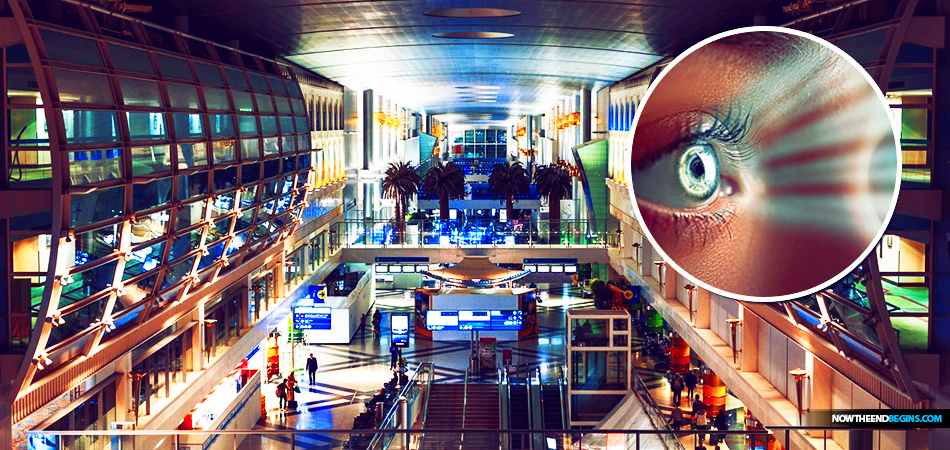
"The future is coming," said Major Gen. Obaid Mehayer Bin Suroor, deputy director of the General Directorate of Residency and Foreign Affairs. "Now, all the procedures have become 'smart,' around five to six seconds."
Remember that great sci-fi flick 'Minority Report' with the talking billboards and the iris scans that allowed access and entrance to everything? Welcome to the future, it's catching up with us at an alarming rate. In the world's busiest international airport located in Dubai, passengers are now processed for boarding not with paper or even digital passports, but with contactless iris scans. Are you starting to see what the Mark of the Beast system is going to look like? It's here.
"Behold ye among the heathen, and regard, and wonder marvellously: for I will work a work in your days, which ye will not believe, though it be told you." Habakkuk 1:5 (KJB)
The contrived COVID crisis is the accelerator that is pushing all this technology into end times overdrive, and bringing it into common use years earlier than expected. Soon you won't remember what life was like without scanning your iris to board a plane...or purchase groceries...or do just about anything at all. And when they tell you it's the new normal, you'll believe them. Remember years ago when you first got saved, and people told you this was coming and you swore you'd never be a part of it? You're about to have your chance to see how well you can function outside the system.
FROM TECHXPLORE: Dubai's airport, the world's busiest for international travel, can already feel surreal, with its cavernous duty-free stores, artificial palm trees, gleaming terminals, water cascades and near-Arctic levels of air conditioning. Now, the key east-west transit hub is rolling out another addition from the realm of science fiction—an iris-scanner that verifies one's identity and eliminates the need for any human interaction when entering or leaving the country.
It's the latest artificial intelligence program the United Arab Emirates has launched amid the surging coronavirus pandemic, contact-less technology the government promotes as helping to stem the spread of the virus. But the efforts also have renewed questions about mass surveillance in the federation of seven sheikhdoms, which experts believe has among the highest per capita concentrations of surveillance cameras in the world.
Dubai's airport started offering the program to all passengers last month. On Sunday, travelers stepped up to an iris scanner after checking in, gave it a good look and breezed through passport control within seconds. Gone were the days of paper tickets or unwieldy phone apps.
In recent years, airports across the world have accelerated their use of timesaving facial recognition technology to move passengers to their flights. But Dubai's iris scan improves on the more commonplace automated gates seen elsewhere, authorities said, connecting the iris data to the country's facial recognition databases so the passenger needs no identifying documents or boarding pass. The unusual partnership between long-haul carrier Emirates, owned by a Dubai sovereign wealth fund, and the Dubai immigration office integrates the data and carries travelers from check-in to boarding in one fell swoop, they added.
"The future is coming," said Major Gen. Obaid Mehayer Bin Suroor, deputy director of the General Directorate of Residency and Foreign Affairs. "Now, all the procedures have become 'smart,' around five to six seconds."
But like all facial recognition technology, the program adds to fears of vanishing privacy in the country, which has faced international criticism for targeting journalists and human rights activists.
According to Emirates' biometric privacy statement, the airline links passengers' faces with other personally identifying data, including passport and flight information, retaining it for "as long as it is reasonably necessary for the purposes for which it was collected." The agreement offered few details about how the data will be used and stored, beyond saying that while the company didn't make copies of passengers' faces, other personal data "can be processed in other Emirates' systems."
Despite concerns about overzealous surveillance in the UAE, the country's vast facial recognition network only shows signs of expanding. Last month, Prime Minister Sheikh Mohammed bin Rashid Al Maktoum, who also serves as Dubai's ruler, announced the country would begin trials of new facial recognition technology to cut down on paperwork in "some private sector services," without elaborating. READ MORE
No comments:
Post a Comment